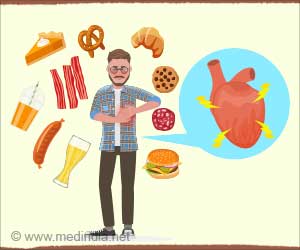Discover how nutritional education can reduce the consumption of ultra-processed foods, enhancing the health and behavior of children with autism and ADHD.

Nutritional epigenetics education improves diet and attitude of parents of children with autism or attention deficit/hyperactivity disorder
Go to source).
Healthy Eating Reduces Autism and ADHD Symptoms
Consumption of ultra-processed foods leads to heavy metal exposures and dietary deficits that create mineral imbalances such as zinc and calcium losses. Inadequate zinc stores can disrupt the function of the metal transporter metallothionein (MT) gene preventing the elimination of heavy metals found in ultra-processed foods.TOP INSIGHT
Nutritional epigenetics education helps parents reduce ultra-processed foods, lowering heavy metal exposure and improving children's autism and ADHD symptoms. #nutritionaleducation #parents #processedfoods #autism #ADHD #kids #medindia
Parents who received nutritional epigenetics education learned how to reduce their children’s dietary exposures to heavy metal and organophosphate pesticide residues. The parents learned how to read food ingredient labels and changed their diet as they avoided buying foods with allowable heavy metals and pesticide residues.
In learning how specific food ingredients contribute to heavy metal exposures, impact nutrient status, and/or gene behavior, parents gained the knowledge they needed to feed themselves and their children a healthier diet. By the end of the education intervention, parents had changed their minds about their ability to control their child’s behavior through diet.
Children behave better when they feel better. Because the severity of symptoms in autism and ADHD correlate directly to the heavy metal levels in the blood, children with less heavy metal exposure show improvements in behavior and cognition.
In addition, because heavy metals, in single or multi-metallic combinations, create conditions for gut dysbiosis, improvements in diet can reduce inflammation and improve gut health. Reducing ultra-processed food consumption can alleviate symptoms associated with gut dysbiosis which is often a co-morbid condition found in children with autism and ADHD.
Reference:
- Nutritional epigenetics education improves diet and attitude of parents of children with autism or attention deficit/hyperactivity disorder - (https://www.ncbi.nlm.nih.gov/pmc/articles/PMC10845225/)
Source-Eurekalert
 MEDINDIA
MEDINDIA




 Email
Email










